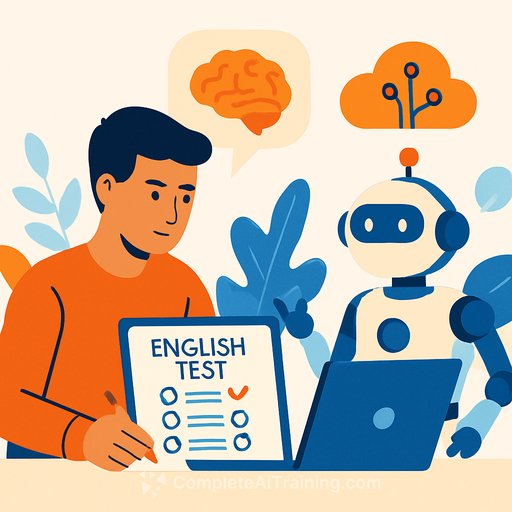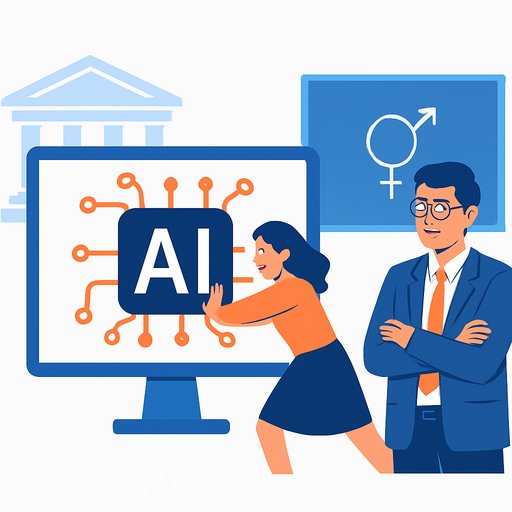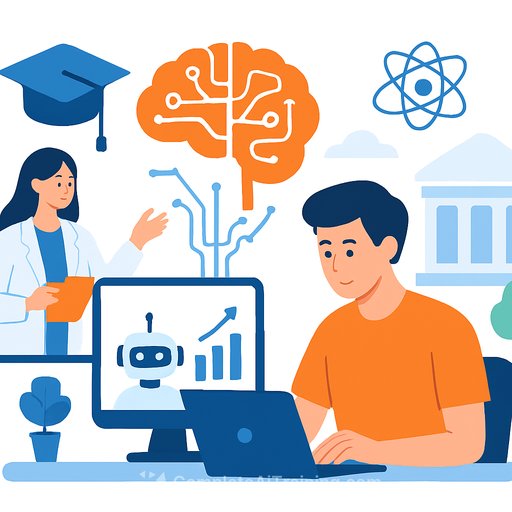Keeping English language testing relevant in the AI era
AI can draft emails, translate, and generate fluent text. That shifts the question for educators and employers from "Can this person produce English?" to "Can this person think, decide, and communicate with purpose in English?"
Trinity College London's ISE Digital tackles that shift. It measures language proficiency and the higher-order competencies that point to real readiness for university and work.
What AI changes-and what it doesn't
Fluency can be simulated. Judgement, accountability, audience awareness, and real-time interaction cannot.
ISE Digital focuses on skills that drive outcomes in lectures, meetings, and projects: clear ideas, strategic processing, confident delivery, and the ability to transform information into insight.
Speaking: presentations that prove readiness
In the speaking module, candidates prepare and deliver a short talk on a topic they choose. This simple format triggers complex behavior: research, selection, structure, and persuasive delivery.
A follow-up question pushes beyond memorization. Candidates must listen, adapt, and respond in the moment-exactly what seminars, tutorials, and client calls demand.
Reading and listening: strategy over surface
Skilled readers skim, scan, infer, and evaluate. Effective listeners combine decoding with meaning-making, using context and world knowledge to fill gaps and assess intent.
ISE Digital builds these habits into tasks. A reading item might ask learners to compare how two texts frame the same issue. A listening item may require inferring a speaker's attitude. These are the same moves students need in lectures and professionals use in meetings.
Writing for digital and academic contexts
Generative tools can produce paragraphs. They don't take responsibility for tone, audience needs, or the consequences of a message.
ISE Digital requires concise online writing (messages, emails) with clear purpose and appropriate tone, plus academic writing that calls for synthesis, paraphrasing, knowledge transformation, and structured argumentation. This shows critical engagement, not just text production.
Beyond a CEFR score
ISE Digital goes past a band result. It asks: Can the candidate present, hold a dialogue, apply research-backed reading and listening strategies, communicate appropriately online, and transform knowledge through writing?
Tasks adapt across all four skills, keeping challenge proportional to ability while still asking for independence and growth. The assessment supports learning as much as it measures it-driving positive classroom practices.
Why this matters for universities and employers
- Admissions: Identify students who can contribute in seminars, not just passively consume content.
- Academic support: Target strategy training (reading/listening) where it pays off across subjects.
- Employability: Signal candidates who can present ideas, respond to questions, and write with judgement.
- Integrity in the AI era: Focus assessment on skills that reflect human decision-making and interaction.
Practical steps for institutions
- Adopt tasks that require research, comparison, inference, and live response. These resist over-reliance on tools and reward genuine skill.
- Teach strategy explicitly: skimming vs. scanning, inference, evaluation, and note-taking from multimodal sources.
- Assess writing in two modes: concise digital communication and structured academic synthesis.
- Use adaptive assessment to keep challenge fair while still pushing for growth.
- Develop staff AI literacy so policies and pedagogy stay current. Consider role-based training for teams here.
The bottom line
AI can help with language tasks, but it can't replace the human skills that matter in higher education and work: autonomy, critical thinking, confident communication, and the ability to transform knowledge.
By building authenticity, adaptivity, and meaningful tasks into all four skills, ISE Digital offers evidence of proficiency that also develops the competencies communities value most.
Your membership also unlocks:






